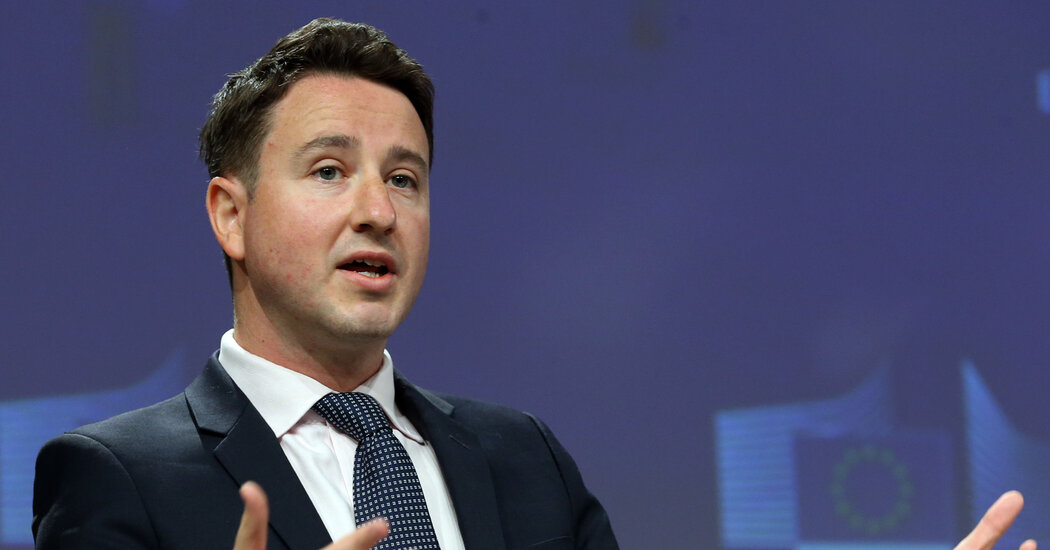Gov. Kathy Hochul of New York has not always seen eye to eye with Zohran Mamdani, a New York mayoral candidate, but they appear to be aligned on tackling the city’s affordability crunch, a problem that is roiling politics as far away as France.
In her endorsement of Mr. Mamdani, Ms. Hochul wrote on Sunday that she has emphasized to Mr. Mamdani, a candidate with leftist views that have spooked business leaders, that job one is “keeping and attracting businesses so that New York remains the center of the global economy.”
But her endorsement leaves several questions, including where she stands on Mr. Mamdani’s more controversial ideas, like a wealth tax. If elected, Mr. Mamdani would need the governor’s support to get some of his more progressive ideas approved, which would include raising city income tax by 2 percentage points on those earning $1 million. He has said that would raise $4 billion a year and help finance free bus service and universal child care.
Mr. Mamdani’s ideas align closely with those of Gabriel Zucman, an economist at the Paris School of Economics and the University of California at Berkeley. Mr. Zucman’s proposal to tax the richest French — called the “Zucman tax” — has ignited similar fury there, too. He counters that the measures would raise badly needed revenue to plug the country’s struggling finances.
Mr. Zucman’s ideas are shared by by Democrats in the United States, like Senators Elizabeth Warren and Bernie Sanders. And snippets of such wealth-tax policies were in the presidential campaign platforms of Joseph R. Biden Jr. and Kamala Harris.
Those efforts fizzled — and they remain a long shot today. But Mr. Zucman believes that the political winds were beginning to turn. “The odds are good even if the timing is uncertain,” he said in an interview. “Always remember that the U.S. has had a very progressive tax system for half a century, from the 1930s to the early 1980s, with top marginal income tax rates that sometimes exceeded 90 percent. Fiscal history is full of U-turns.”
And, he added, it’s popular. “People see that everyone pays a lot of tax, with one exception: ultra-high-wealth individuals.”
But wealth taxes have been attacked on both sides of the Atlantic. Critics, including business leaders across the political spectrum, have warned that such targeted taxes would hurt the local economy, driving away wealthy taxpayers, starving governments of crucial funds.
“It is a horror,” Laurent Wauquiez, a member of the French National Assembly, said in a televised interview last week. The billionaire financier Bill Ackman has called Mr. Mamdani a “catastrophic choice,” and John Catsimatidis, the New York supermarket tycoon, has threatened to close his Gristedes stores if he’s elected. In June, Ms. Hochul roundly rejected the wealth tax, saying, “I don’t want to lose any more people to Palm Beach.”
Anxiety over a billionaire exodus could be overblown, however. In France, a study in July by the government’s Council of Economic Analysis agreed that tax increases would lead some rich taxpayers to leave the country, but it estimated such an exodus would cause minimal economic harm.
In the United States, about 2.5 percent of wealthy Americans move every year to other tax jurisdictions, compared with about 5 percent of low-income taxpayers, according to Cristobal Young, associate professor of sociology at Cornell University, who has examined tax-driven mobility using I.R.S. data. For many, the stakes are too high to move, he said: “You give up being a well-established insider, well connected to others in your professional and personal life.”
Mr. Zucman concurs. “We’re talking about an income tax of 2 percent,” he said. “That’s really not a lot of money for people who have businesses and families and networks and various interests in New York.”
Ms. Hochul, who is running for re-election next year, did not mention the issue in her endorsement of Mr. Mamdani.
The post The Wealth Tax Plan That’s Roiling New York and Paris appeared first on New York Times.




